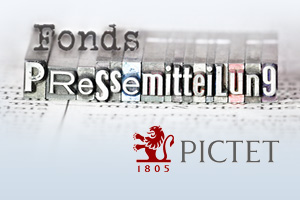 Pictet | Frankfurt, 17.11.2014.
Pictet | Frankfurt, 17.11.2014.
“Local currency emerging market debt is becoming increasingly attractive”, says Luca Paolini, chief strategist at Pictet Asset Management. “Valuations for both bonds and currencies and a likely continuation of a benign interest rate environment are supporting high-yielding asset classes.
“As emerging growth is slowing, especially in Latin America, the differential between developing and advanced economies has narrowed, although it is still positive in favour of emerging markets. “More importantly given the sharp fall in energy prices, there seems to be a growing divergence in the financial fortunes of many emerging economies. Manufacturing exporters and energy importers such as Turkey, Korea and India are benefiting from the decline in energy costs, while commodity exporters especially those in Latin America are struggling.
“Manufacturers are also better positioned to benefit from good momentum in the US economy, which is the sole engine of global growth at the moment.
“After losing nearly a fifth of their value in the past three years, emerging market currencies are further away from ‘fair value’ than they have ever been before, suggesting some scope for a rebound in the medium term. This, together with high carry and attractive valuation, makes local debt in developing markets attractive.
“We are long local currency debt in Brazil and Turkey, while we take tactical long positions in currencies in South Africa, Turkey, Korea and India.
“Conversely, the outlook for investment grade debt is not positive. Valuations look stretched and we have reduced European investment grade bonds to a single-digit underweight position.
“We remain neutral on high-yielding debt: volatility has risen as liquidity has deteriorated and investors have become cautious about the credit risk within non-investment grade companies.
“Government bonds remain less attractive – yields are already very low, having moved too far in discounting slow growth and weaker inflation relative to our own expectations.
“Elsewhere, we see improving environment for equities as a drop in oil prices and ongoing monetary support from central banks are likely to boost economic momentum and risk appetite towards the year end.
“Our regional equity allocation remains unchanged and we keep our preference for European equities over US, whilst Japan and emerging markets are maintained at benchmark weights.”
“European equity markets should be boosted by improving liquidity conditions, favourable valuations adjusted over the business cycle and overly pessimistic assumptions about the region’s growth prospects.
“By contrast, US stocks do not look particularly cheap. The region’s economic momentum remains strong and offers a solid backdrop for US firms but this seems to have already been discounted by the markets.
“Japanese equities are attractively valued and supported by favourable liquidity conditions after the Bank of Japan‘s latest monetary easing, although this is offset by mixed macroeconomic data, particularly in manufacturing.
“Improving global growth will support the most cyclically-exposed sectors: industrials and energy. We have brought our long exposure to materials back to neutral to reflect an economic slowdown in China.
“Cyclical stocks also look attractive relative to defensive sectors whilst we are cautious about utilities and healthcare.”
The Pictet Group
Founded in 1805 in Geneva, the Pictet Group is one of the premier independent asset and wealth management specialists in Europe, with GBP272 billion in assets under management and custody at 30 September 2014. The Pictet Group is owned and managed by eight partners with principles of ownership and succession that have remained unchanged since foundation. Based in Geneva, the Pictet Group employs more than 3,600 staff. The Group has offices in the following financial centres: Amsterdam, Barcelona, Basel, Brussels, Dubai, Florence, Frankfurt, Hong Kong, Lausanne, London, Luxembourg, Madrid, Milan, Montreal, Nassau, Paris, Rome, Singapore, Turin, Taipei, Tel Aviv, Osaka, Tokyo and Zurich. Pictet Asset Management (“PAM”) includes all the operating subsidiaries and divisions of the Pictet Group that carry out institutional asset management: Pictet Asset Management SA, a Swiss corporation registered with the Swiss Financial Market Supervisory Authority FINMA, Pictet Asset Management Limited, a UK company authorised and regulated by the Financial Conduct Authority, and Pictet Asset Management (Japan) Limited, a Japanese company regulated by the Financial Services Agency of Japan. At 30 September 2014, Pictet Asset Management managed GBP93 billion in assets, invested in equity and bond markets worldwide. PAM has seventeen business development centres worldwide, extending from London, Geneva, Frankfurt, Amsterdam, Luxembourg, Madrid, Munich, Milan, Paris and Zurich via Dubai, Hong Kong, Taipei, Osaka, Tokyo and Singapore to Montreal.
ABOUT THE PSU
The Pictet Asset Management Strategy Unit (PSU) is the investment group responsible for providing asset allocation guidance across stocks, bonds, cash and commodities. Each month, the PSU sets a broad policy stance based on its analysis of: • business cycle: proprietary leading indicators, inflation • liquidity: monetary policy, credit/money variables • valuation: equity risk premium, yield gap, multiples vs. history • sentiment: Pictet sentiment index (investors’ surveys, tactical indicators.
Kontakt
Oliver Möller, Leiter Unternehmenskommunikation, Pictet & Cie (Europe) S.A., +49 69 79 500 930, omoeller@pictet.com


